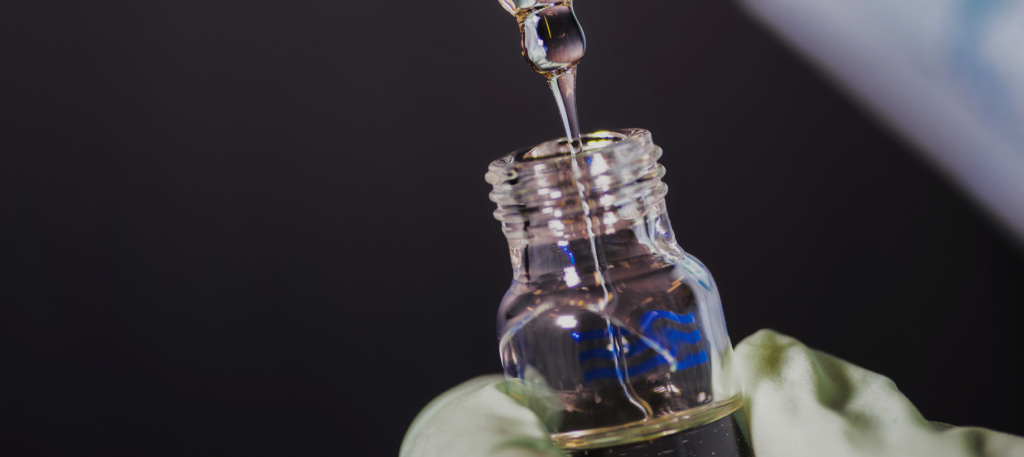The health-promoting and therapeutic benefits of probiotics have been long known, dating back about 100 years. Although they’ve been the subject of countless research articles in the past 15 year, probiotics have come a long way. Naturally present in yogurt, kefir, and fermented foods, you can now find probiotics in just about anything, from skincare to carbonated beverages.
Probiotics play a crucial role in rebalancing your system internally and are effective in enhancing immunity, optimizing digestion, and synthesizing vitamins. Needless to say, if your microbiome is lacking, this can manifest in many ways including a compromised immune system, impaired digestion and weight gain, and nutrient deficiency to name a few.
What is the gut microbiome?
The microbiome is an umbrella term for all of the living microorganisms that inhabit our body and they consist of bacteria, fungi, protozoa, and viruses. Although it may be unpleasant to think we have these things living inside of us, they actually play a vital role in our health. In fact, without them we wouldn’t be alive. Our microbiome helps us break down food for energy, produce vitamins, and helps modulate our immune system, protecting us from germs and disease.
Probiotics are live microorganisms that are present within our intestinal tract and when ingested produce therapeutic and protective health benefits. About 100 years ago when probiotics were first discovered, it was known that these microorganisms were present within our food and were often added to food for preservation purposes. Nowadays, with the tendency toward manufacturing and consumption of processed foods in a sterile food supply, the ingestion of probiotics has become much more limited and has affected our health in detrimental ways. Our bodies are exposed to probiotics through the vaginal canal at birth and humans have evolved with them naturally. Supplementing with a probiotic is a good foundational health practice to get into because we need them to sustain us. The lack of microorganisms in our food supply, overuse of medications, poor soil quality, environmental toxins, and chronic stress are good reasons to take a probiotic and eat fermented foods on a regular basis. There are hundreds of different strains of bacteria. Some of the most common one’s you’ll see happen to also be some of the most health promoting. These include strains from the Lactobacillus and Bifidobacterium species.
So, if these microorganisms are naturally present within me, why do I need to supplement with probiotics?
Our nutritionists and doctors at Hudson believe supplementing with a probiotic is one of the best practices to begin to build a solid foundation for your health. They are generally recognized as being safe for most populations, and there are only a few instances where taking one is not recommended, such as in immunocompromised individuals. So why are they so important in our modern world?
Here are a few things to consider:
Our Food: Unfortunately, our food supply is loaded with toxins from over utilization of pesticides and other toxic chemicals that farmers use to kill bacteria, insects, and invasive plants. In most cases this is helpful for growing a plethora of food to supply our large population but the pitfall is these chemicals stay on our food and we ingest them as a byproduct. Our modern diet is not as diverse as it once was, either. The typical diet for most consists of processed, packaged foods instead of the whole-food, nutrient dense standard that made up the majority of the foods humans evolved on. Sadly, this depletes the helpful bacteria that live within us since they thrive on healthy fibers and components of a whole foods diet.
Soil Quality: Our soil quality is much different than how it was back in the day during human’s primitive years. In fact, much of the nutrition that is found within fruits and vegetables is derived from the soil it’s grown in. In short, if soil health is compromised, the food that is being grown in it has less vital vitamins and minerals, therefore decreasing the actual amount humans and other animals are ingesting. Unfortunately, modern day soil is not the same due to pesticides, herbicides, GMO’s, and other technology we have created to make food production easier.
Stress: Internal and outside environment. Let’s be real… our bodies are chronically stressed all. the. time. It seems we are constantly coming face to face with stressors in our life from financial burdens, family, health, and living in a society that glorifies the hustle and always being on the go. These stresses can wreak internal havoc – raising the level of cortisol in our body which can segway into increasing other biomarkers, leading to metabolic dysfunction. Stress can cause more harm than most realize! It’s important to keep these things in check – and to help modulate these physiological responses via our microbiota. A recent study found that probiotic supplementation enhances the physiological and psychological responses to stress (1) which is no surprise given all we know about how our microbiome influences many bodily systems.
Medication: According to a 2018 study, there are over 1,000 non-antibiotic drugs that inhibit the growth of at least one microbial strain and wreak havoc on our GI system (2). Antibiotics are also commonly used, especially in children, and kill off all bacteria, good and bad. They’re necessary in most cases but are often over prescribed – and it’s important to supplement with a probiotic especially after a round of antibiotic treatment. At Hudson, our physicians and nutritionists take all this into account in your treatment, prescribing the right medication when necessary and supplements to counter-balance and optimize health.
Best food sources of probiotics and prebiotics:
In any case, it’s best to eat foods that are high in fiber and act as prebiotics to ‘feed’ the live bacteria, aka probiotics. At Hudson, we recommend almost everyone supplement with a probiotic daily, but it can also be beneficial to eat foods that are high in probiotics. An example of these would be yogurt, kefir, kimchi, kombucha, tempeh, miso, and sauerkraut.
Foods that are high in prebiotics include onions, asparagus, garlic, apples, bananas, artichokes, and all legumes. Another great reason to eat your fruits and veggies!
Functional Medicine at Hudson Wellness:
If you suffer from chronic fatigue, gas, bloating, constipation, abdominal pain, or you already have a diagnosed digestive disorder, you probably are suffering from dysbiosis and need to make changes to your diet and supplement routine to bring your body back to balance. Here at Hudson, we do an in-depth analysis into your digestive system through stool and breath tests to determine exactly what you’re lacking or to see if there’s an overgrowth of a certain type of bacteria that could be causing digestive dysfunction. We recommend consulting with a functional doctor or nutritionist to find what you need.
1.Papalini S, Michels F, Kohn N, et al. Stress matters: Randomized controlled trial on the effect of probiotics on neurocognition. Neurobiol Stress. 2018;10:100141. Published 2018 Dec 10. doi:10.1016/j.ynstr.2018.100141
2. Maier L, Pruteanu M, Kuhn M, et al. Extensive impact of non-antibiotic drugs on human gut bacteria. Nature. 2018;555(7698):623–628. doi:10.1038/nature25979






